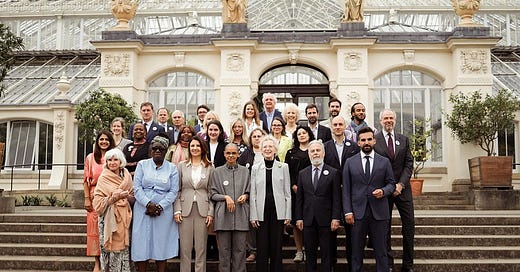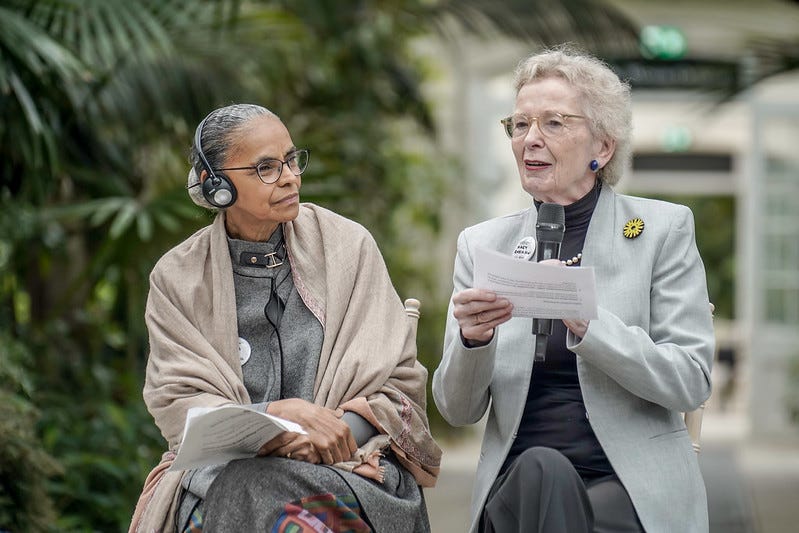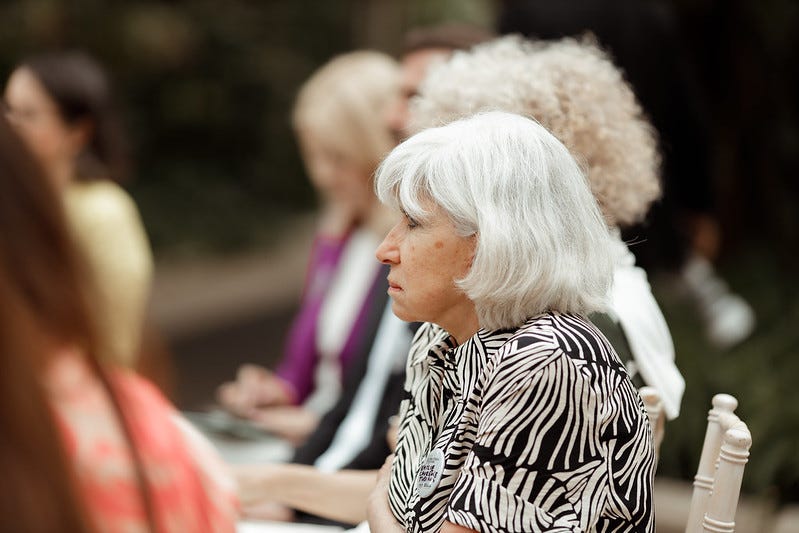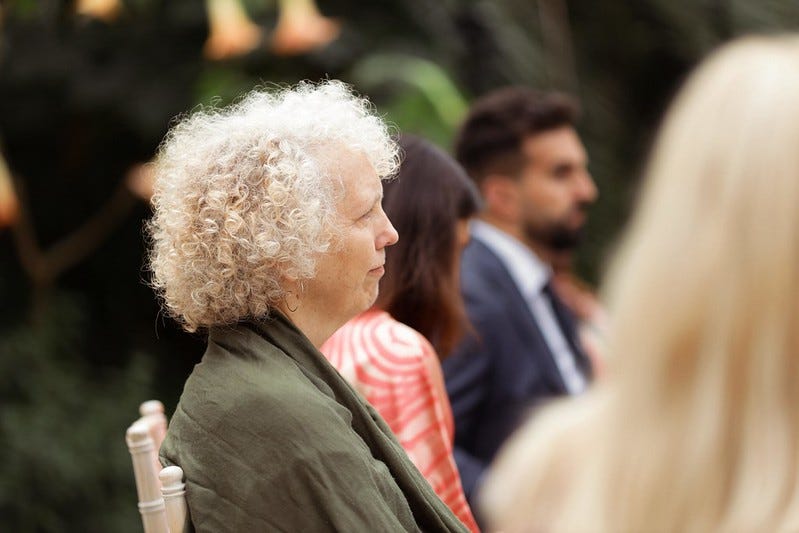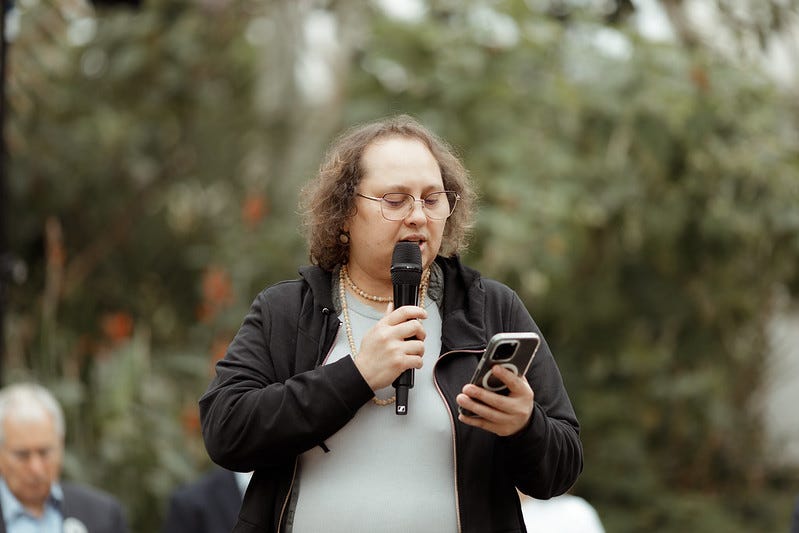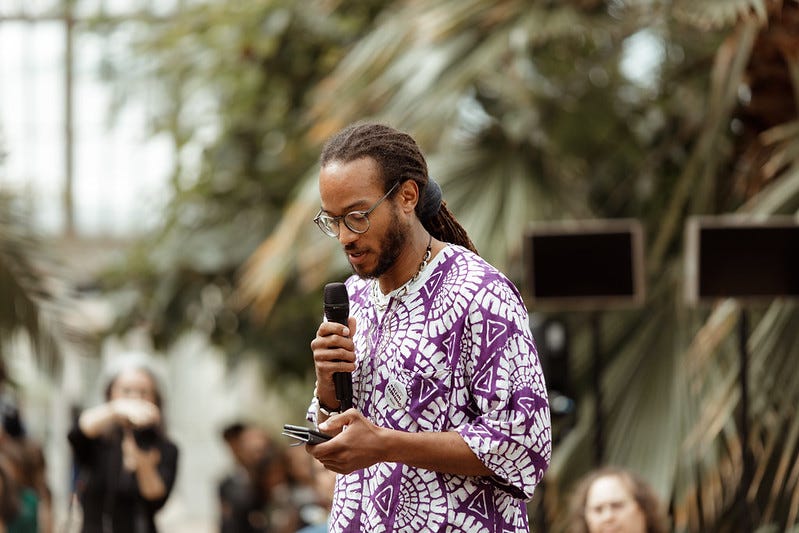COP30’s Hot Ticket? A Spine and a Moral Code
Trust. Accountability. Inclusion. The Official Climate Credentials for Belém.
Brazil is at a critical juncture in its environmental policy. A few weeks ago, I broke down the sweeping risks of Bill 2159/2021, which threatens to weaken environmental licensing across the country. Now, the story is shifting - toward organised resistance, cautious hope, and strategic alliances that could reshape the country’s climate leadership ahead of COP30 in November.
During London Climate Action Week, we at The Chief Brief, and our founder editor were asked to be at the center of a historic moment – the launch of the Global Ethical Stocktake (GES), a bold new initiative led by President Lula and UN Secretary-General António Guterres to put ethics, justice, and human dignity at the centre of global climate negotiations. We connected with climate leaders from around the world. And we officially joined Project Dandelion – Mary Robinson’s visionary, women-led global campaign for climate justice.
The first of six global dialogues, the GES, Europe Edition was held at the Royal Botanic Gardens, gathering voices from across Europe – spanning sectors, cultures, and generations – to explore the ethical dimensions of the climate, ecological, and social crises.
Dialogue extended beyond words – honouring the idea that ethics is embedded not only in policy, but also in culture, creativity, and collective memory.
The morning opened with a stirring performance from the political satire/thriller West End play Kyoto, setting a reflective and imaginative tone. A select 20 of Europe’s most powerful climate voices were asked to contribute solutions that can take us from mere words and pledges to action. Their words, brought to life on occasion with prayers, song, and artwork, leaving many with a rare feeling in climate spaces: genuine hope and quiet optimism.
Marina Silva: Climate Breakdown Is a Moral Breach
Brazil’s Environment Minister, Marina Silva, opened with a message that cut to the core:
“As if the climate emergency weren’t enough, we are also witnessing geopolitical conflict. To promote peace is also to care for the environment. Is it ethical not to take seriously the agreements we have signed?”
Silva reminded us that climate leadership is not performative. It is principled. It means refusing to accept sacrifice zones, restoring lost trust between nations and generations and addressing the structural injustice that underpins this crisis.
Mary Robinson: No More Politeness
Former Irish President and UN High Commissioner for Human Rights Mary Robinson brought fire to the conversation.
“I’m here as an angry granny. We have to set the bar high. We have to speak with truth. This moment is about provoking reflection and being a pressure point for action.”
She didn’t mince words. Diplomacy without urgency, she warned, is no longer just inadequate — it’s dangerous. Robinson’s rallying cry landed with gravity: this is a crisis that demands honesty, ambition, and unshakable moral clarity.
Laurence Tubiana: Trust Citizens to Drive Climate Action
Climate diplomat and architect of the Paris Agreement, Laurence Tubiana, called for a renewed focus on trust and citizen engagement:
“Friendship must be our first principle. Implementation starts with citizens – citizen, citizen, citizen. We have to trust people, put them at the center, and rely on their moral authority to drive change.”
Laurence’s call was clear: trust people. Center them. Act together.
Jennifer Lee Morgan: Lead with Empathy, Build Collective Power
Germany’s former State Secretary and Special Representative for International Climate Policy who as a climate activist was also formerly Greenpeace International’s Executive Director, Jennifer Lee Morgan, highlighted the urgent need for empathy and collective action:
“There is too much darkness, division, and selfishness. We must come together, build power collectively, and lead with heart. Empathy, respect, and collaboration can transform everything.”
She stressed that how we treat each other – with respect, love, and critically, a willingness to listen – is essential to building the just and sustainable world we need.
Judit Bari: Don’t Forget About Those Most Vulnerable
Roma climate advocate Judit Bari brought an urgent reminder: climate action needs to be more inclusive.
Growing up in one of Europe’s most polluted cities, she spoke from lived experience — and from a vulnerable community still very much surviving on the margins.
“We talk about systems change, but rarely include those most impacted. The climate crisis isn’t just environmental — it’s colonial, it’s racial, it’s economic. And that means solutions must be led by those on the frontlines.”
Her words underscored what many at the gathering echoed: participation must be meaningful, not just symbolic. Climate action is hollow if it erases the voices of those who live its consequences daily.
Paul Polman: Less Bad Is Still Bad
Business leader and author Paul Polman brought sharp clarity to the limits of incrementalism:
“We know what we need to do. We have the money. But we’re still not moving fast enough. The difference between 1.5 and 2 degrees is not half a degree — it’s hundreds of millions of lives.”
He urged leaders to move beyond pledges, calling for transparent, science-based action to rebuild trust:
“This issue is beyond everybody. The majority of us really want to make this work but it’s overwhelming. We need to do it by collaborating. We need to put in a system of accountability. You cannot have co-operation if there is no transparency. Transparency comes from truth and truth comes from science. The most important thing is that people make decisions based on science, not own personal self interest.”
Dr. Malcom Ferdinand: Science Isn’t Neutral
Philosopher, scientist and author Dr. Malcom Ferdinand challenged the room to reconsider how we frame climate action. Speaking from both his scientific training and ethical conviction, Ferdinand reminded us that science is never neutral. It cannot be separate from the societies that shape it.
“Science is not objective. We need more science to understand how to mitigate the effects [of climate change]. But if we have more inclusion, maybe we will also have more trust.”
He argued that a solution isn’t just something we engineer. It’s something we build in society, and to be truly effective, it must be inclusive, just, and rooted in historical awareness.
“Let’s aim for justice, for dignity, for a world that — even if it is warming — protects Indigenous and formerly enslaved peoples.”
Ferdinand’s call was clear: climate science must serve people, not just policy. It must carry the memory of colonisation and structural inequality, and use that memory to guide a more ethical, inclusive future.
Why This Moment Matters
The Global Ethical Stocktake is not another technical tool. It’s a moral test that holds us accountable. It asks: Do we mean what we say? Are we willing to lead with values, not just metrics? Are we really listening? And, can we build a future that is not only greener, but fairer?
In the words of Marina Silva:
“There is no lack of solutions. What is missing is the moral will.”
This is climate leadership: inclusive, accountable, and deeply human.
We’re watching. We’re listening. We’re demanding more. Now, all eyes are on COP30.
The strongest signals are often buried in soft language or dismissed as minor moments. That’s why we brief you. So when the story breaks big, you already knew where it started.

